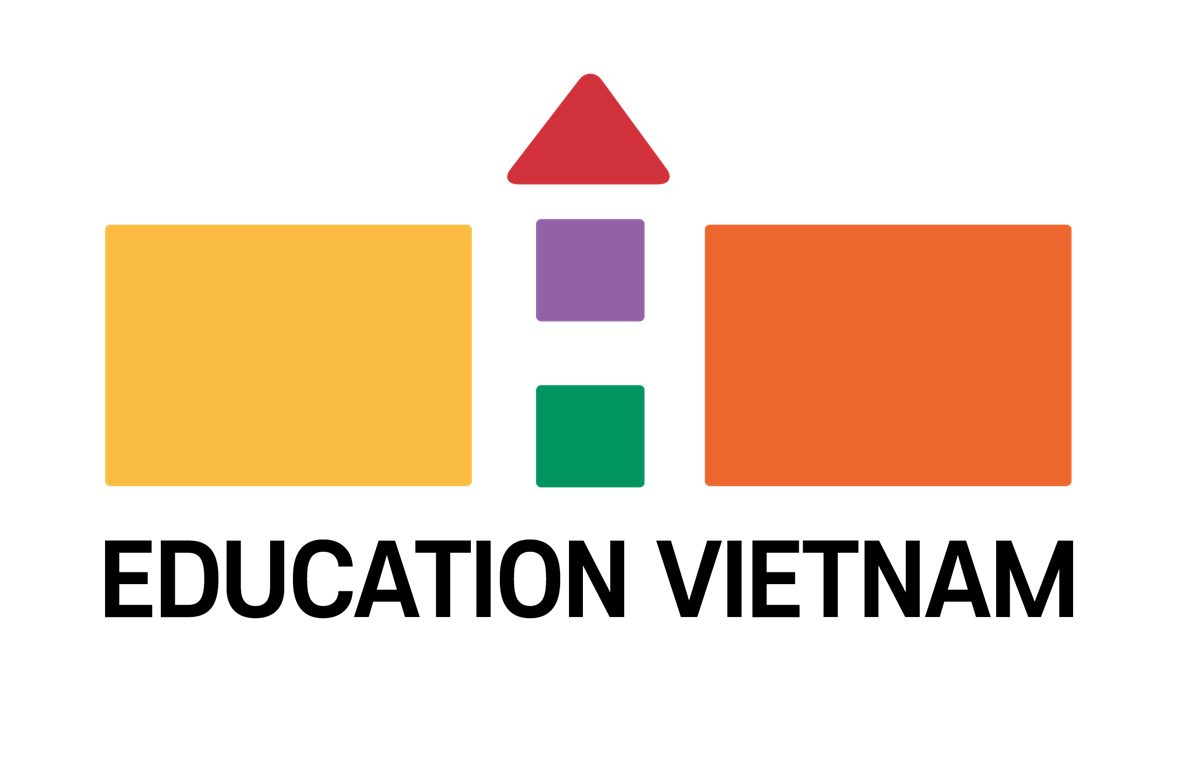
Education Vietnam 2026
May 06 (Wed) ~ 08 (Fri), 2026,
SECC, HCMC, Vietnam
Digital Skills & STEM: The Future of Vietnamese Education by 2030
22/8/2025
In the era of digital transformation, Digital Skills & STEM: The Future of Vietnamese Education by 2030 is no longer just a slogan but a strategic direction. The world is entering the Fourth Industrial Revolution, driven by artificial intelligence (AI), the Internet of Things (IoT), big data, and automation. If the education system does not quickly catch up, Vietnamese students risk being left behind.
Vietnam is witnessing rapid growth in sectors related to technology, data science, engineering, and innovation. To adapt, education must focus on developing digital skills and STEM thinking to cultivate a young workforce that is flexible, creative, and globally competent.
What Are Digital Skills and STEM?
1.1. Digital Skills
Digital skills refer to the ability to use information technology, communications, the internet, and software to support work, study, and daily life. These skills form the foundation for adapting to a digitalized work environment.
Key digital skill groups include:
- Technology literacy: Proficiency in computers, smartphones, office software, and educational applications.
- Digital safety: Protecting personal information, avoiding online scams, and adhering to digital ethics.
- Data analysis: Extracting, processing, and using data to support decision-making.
- Digital creativity: Developing digital content, programming, designing apps, and participating in e-commerce.
1.2. STEM Education
STEM stands for Science, Technology, Engineering, and Mathematics. STEM education not only provides knowledge but also trains critical thinking, problem-solving, collaboration, and creativity.
A practical example: Students in STEM programs do not just solve theoretical problems—they also build robotic models, write control software, or design renewable energy solutions.
Thus, digital skills and STEM represent a combination of technological competence and scientific-engineering thinking, aiming to develop a comprehensive human resource pool.
Current State of Vietnamese Education Toward 2030
To understand the future of digital skills and STEM education in Vietnam, consider the current context:
- The 2018 general education curriculum introduced STEM teaching orientations, especially in Math, Physics, Chemistry, and Informatics.
- Many universities have launched programs in AI, data science, and robotics engineering.
- National and international STEM competitions have attracted a large number of Vietnamese students with notable achievements.
Challenges remain:
- Regional disparities: Schools in rural and mountainous areas lack equipment and stable internet.
- Teacher training gaps: Insufficient trained teachers in STEM methodologies.
- Curriculum inconsistency: Many places focus on theory rather than practical application.
- Heavy exam pressure: Limits students’ opportunities for creativity and experimentation.
Role of Digital Skills & STEM for the Future of Vietnamese Education
The impact of digital skills and STEM can be analyzed across several dimensions:
|
|
|
|
|
|
|
|
|
|
|
|
|
|
|
Therefore, digital skills and STEM are key to building an innovative education system aligned with real-world demands.
Policies and Directions Toward 2030
The Vietnamese government has issued several strategic initiatives to strengthen STEM and digital skills education:
- Decision 131/QĐ-TTg (2022): Approving the national digital transformation program in education.
- Vietnam Education Development Strategy 2021–2030: Emphasizes STEM and digital skills as core priorities.
- Resolution 52-NQ/TW on Industry 4.0: Encourages innovation and digital workforce development.
Specific directions include:
- Universal digital skills for primary school students.
- Promoting international cooperation with educational organizations and major tech corporations.
- Encouraging businesses to invest in STEM education, support labs, and digital learning materials.
- Enhancing teacher training in active teaching methods and technology application.
Challenges and Solutions
While opportunities abound, implementing digital skills and STEM education effectively faces several challenges:
Challenges
- Disparities in technological infrastructure across regions.
- Limited funding for STEM initiatives.
- Parents focus on exams over practical skills.
- Lack of internationally aligned curricula adapted to the Vietnamese context.
Solutions
- Synchronized investment: Equip schools with modern technology and high-speed internet.
- Education socialization: Encourage business and community participation.
- Innovative student assessment: Focus not only on grades but also creativity and teamwork skills.
- Build a digital learning ecosystem: From digital libraries and online courses to virtual classrooms.
Vietnam Education Outlook by 2030
If strategies are properly implemented, by 2030 Vietnam’s education system will achieve:
- Holistic students: Strong scientific foundation and digital competence.
- Smart schools: Use AI, IoT, and big data for management, teaching, and learning.
- Digital learning society: Lifelong learning opportunities available online for all citizens.
- High-quality workforce: Meeting the demands of the digital economy, positioning Vietnam as a regional innovation hub.
Thus, digital skills and STEM will not only transform teaching and learning methods but also shape a generation of confident, creative, and globally integrated citizens.
Conclusion
Digital Skills & STEM: The Future of Vietnamese Education by 2030 represents a pivotal step for Vietnam to keep pace with global trends. Developing digital skills and advancing STEM education will cultivate a generation ready to adapt, innovate, and contribute to sustainable national development.
This responsibility extends beyond the government to parents, teachers, businesses, and society at large. If successfully executed, by 2030 Vietnam will have a modern education system, opening a bright future for the youth.
Bài viết mới nhất
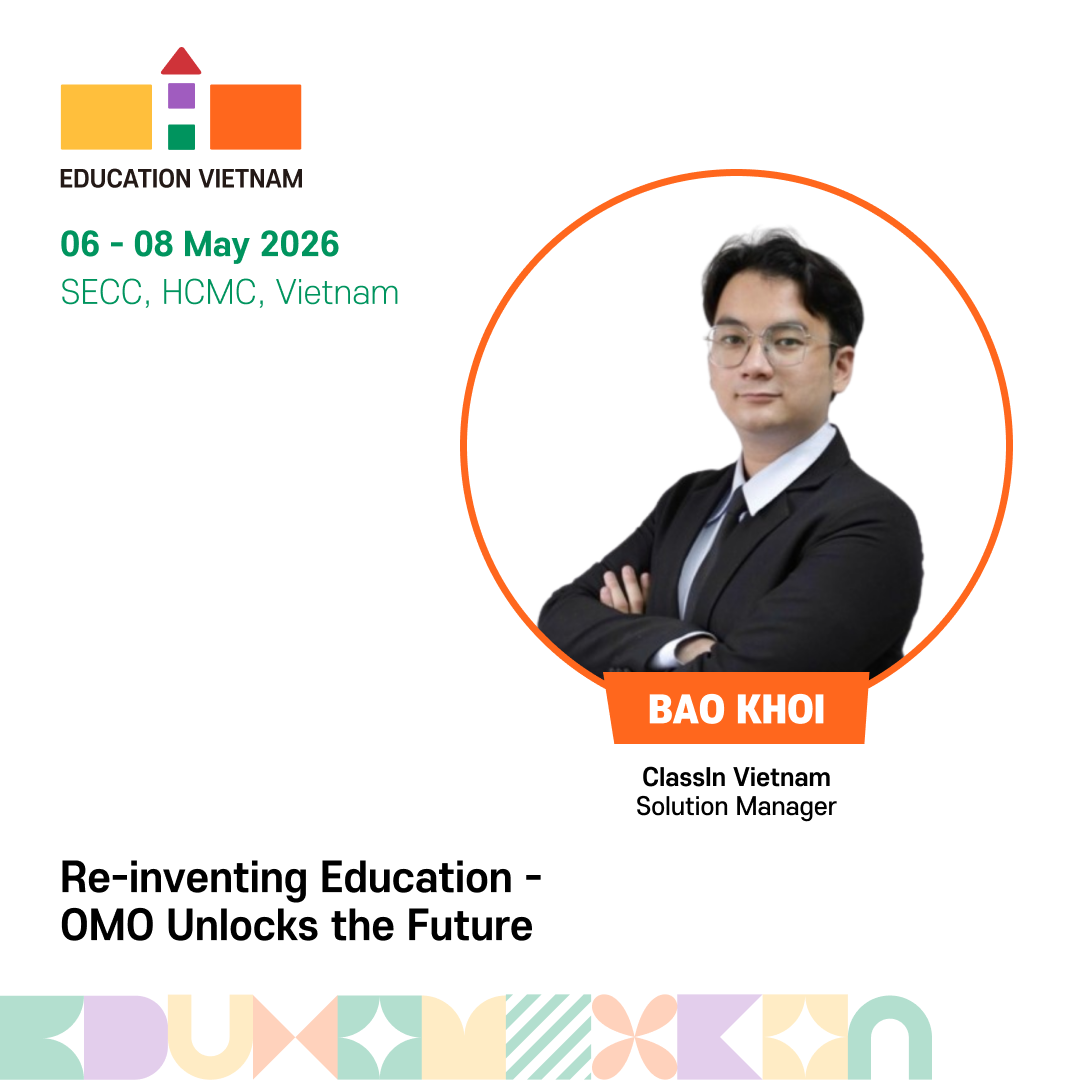
Re-inventing Education: The OMO Model – Unlocking the Future of Flexible Learning
27/1/2026
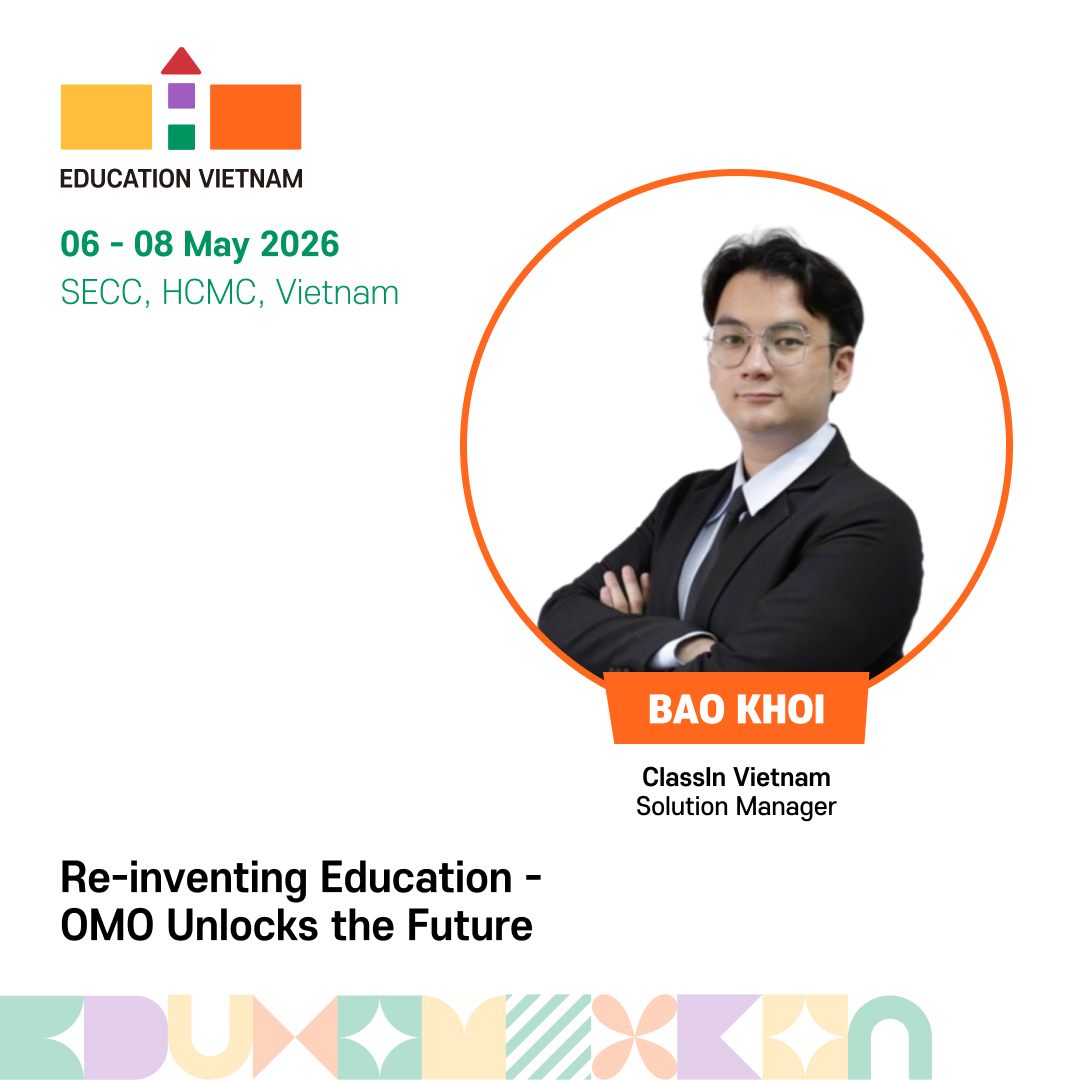
Tái Định Nghĩa Giáo Dục: Mô Hình OMO – "Chìa Khóa" Mở Khóa Tương Lai Học Tập Linh Hoạt
27/1/2026
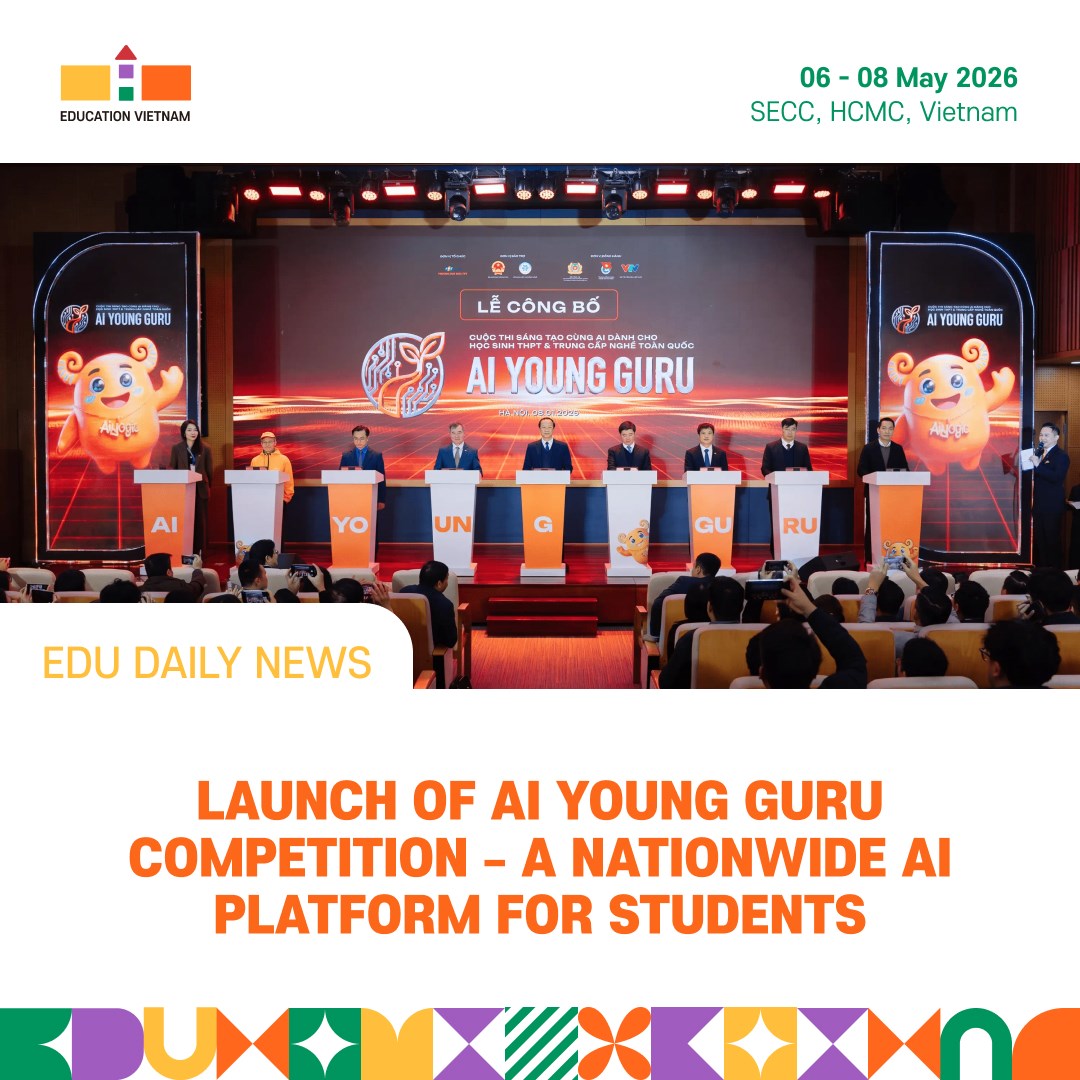
AI Young Guru: Igniting the Technological Potential of Vietnam’s Youth
23/1/2026
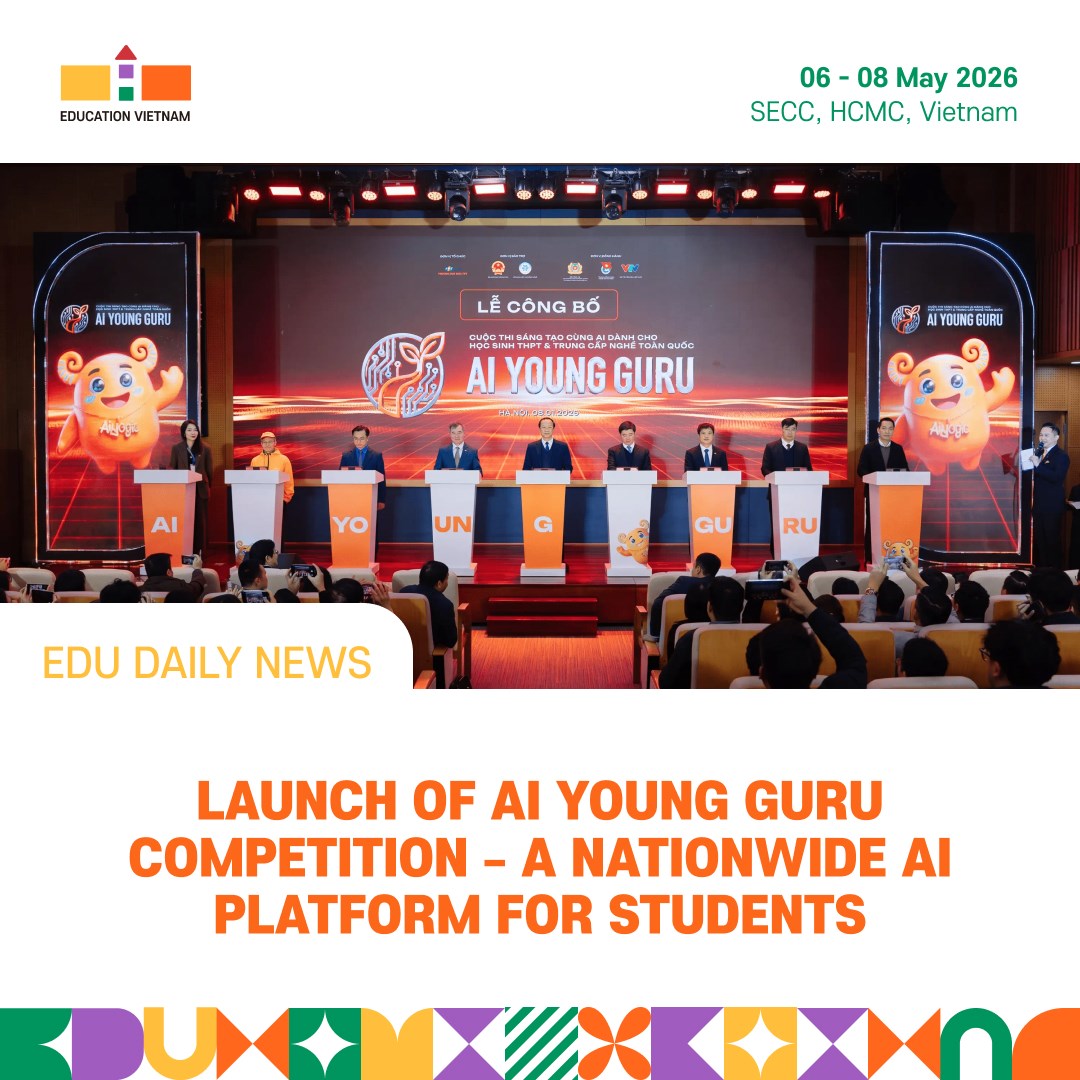
AI Young Guru: Đánh Thức Tiềm Năng Công Nghệ Của Thế Hệ Trẻ Việt Nam
23/1/2026
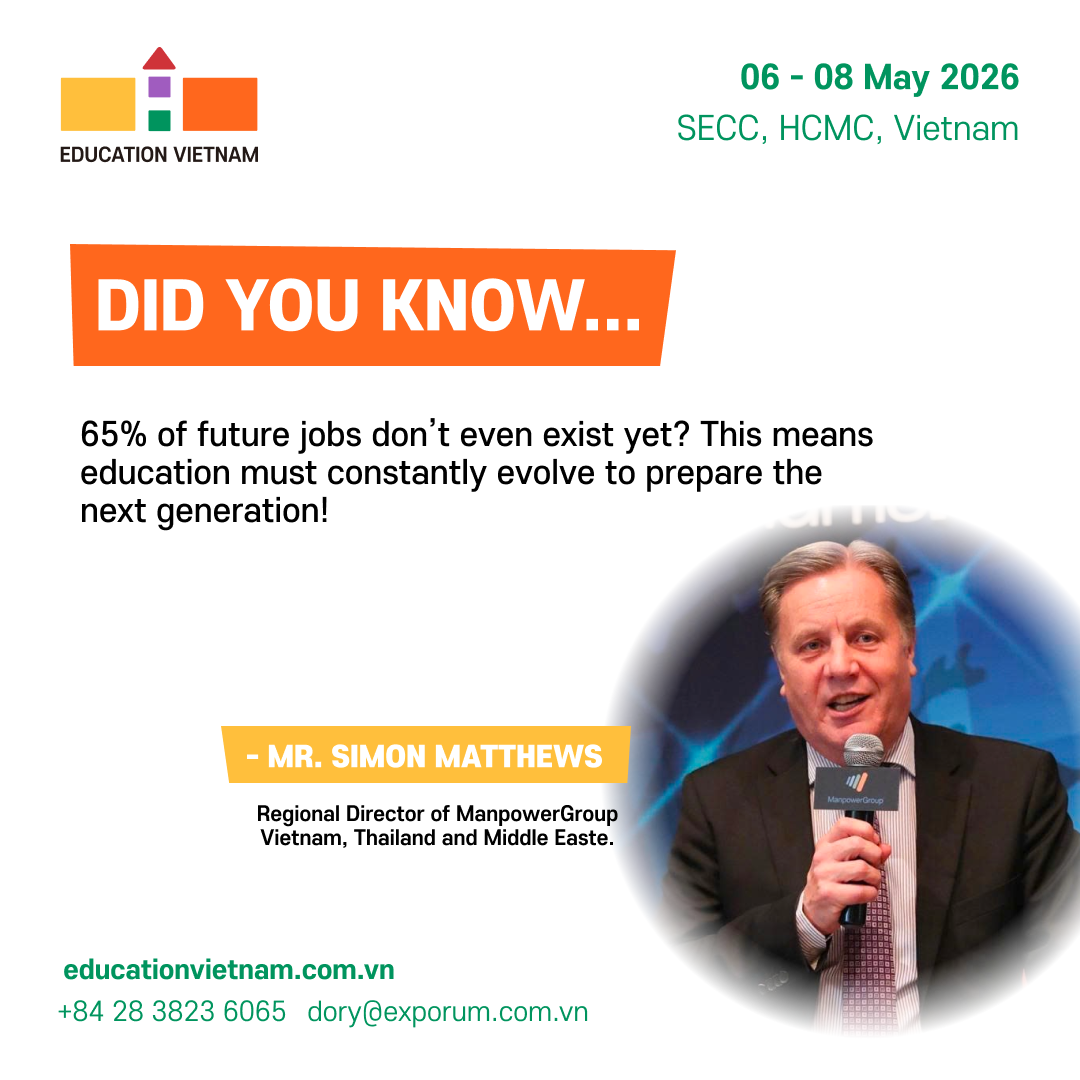
Educating for Jobs That "Don't Exist Yet": Challenges and Opportunities at Education Vietnam 2026
20/1/2026
